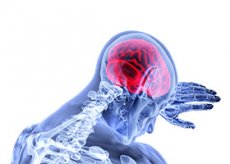New publications
Individual symptoms after a concussion persist for years
Last reviewed: 02.07.2025

All iLive content is medically reviewed or fact checked to ensure as much factual accuracy as possible.
We have strict sourcing guidelines and only link to reputable media sites, academic research institutions and, whenever possible, medically peer reviewed studies. Note that the numbers in parentheses ([1], [2], etc.) are clickable links to these studies.
If you feel that any of our content is inaccurate, out-of-date, or otherwise questionable, please select it and press Ctrl + Enter.

Scientists from Australia's La Trobe University have discovered that some symptoms that appear after a concussion can bother a patient for many years. The experts have carried out extensive work, thanks to which new diagnostic and treatment methods for post-concussion syndrome will be developed in the future.
The author of the project work was Professor Alan Pearce.
Approximately ten percent of patients who have had a concussion subsequently develop a complication in the form of post-concussion syndrome. This is a symptom complex that persists for a long time after the injury. For example, individual symptoms may be present in a person for several weeks or months after the injury. In addition, additional diagnostics are often not performed, or an incorrect diagnosis is made.
Approximately 80% of concussions are caused by moderate traumatic injuries, and these are the most common. In their new research project, the researchers tried to determine how severe the symptoms of post-concussion syndrome are, and then proposed their own treatment options for such patients.
Leading concussion expert Alan Pearce has used cutting-edge technology to find out how well post-concussion syndrome can be recognised, what mechanisms are triggered in the body and, accordingly, what treatments will be particularly relevant.
Using two different technological approaches to measuring signals sent to and from the brain, the professor and his colleagues determined the functional state of the organ. They obtained data that previously seemed completely inaccessible to research. For example, the specialists determined that patients suffering from post-concussion syndrome experience chronic and quite pronounced fatigue, combined with a slow reaction. In similar studies conducted earlier, scientists took into account only cognitive changes and used magnetic resonance imaging.
According to the researchers, the results of the project will help to form new diagnostic methods for detecting post-concussion syndrome. In the near future, scientists plan to implement new work aimed at identifying and studying optimal rehabilitation programs for patients. Such programs should include changes in nutrition, certain physical activity, and performing special exercises to restore the corresponding brain functions.
The results of the research project were described on the La Trobe University website (www.latrobe.edu.au/news/articles/2019/release/understanding-post-concussion-symptoms).
